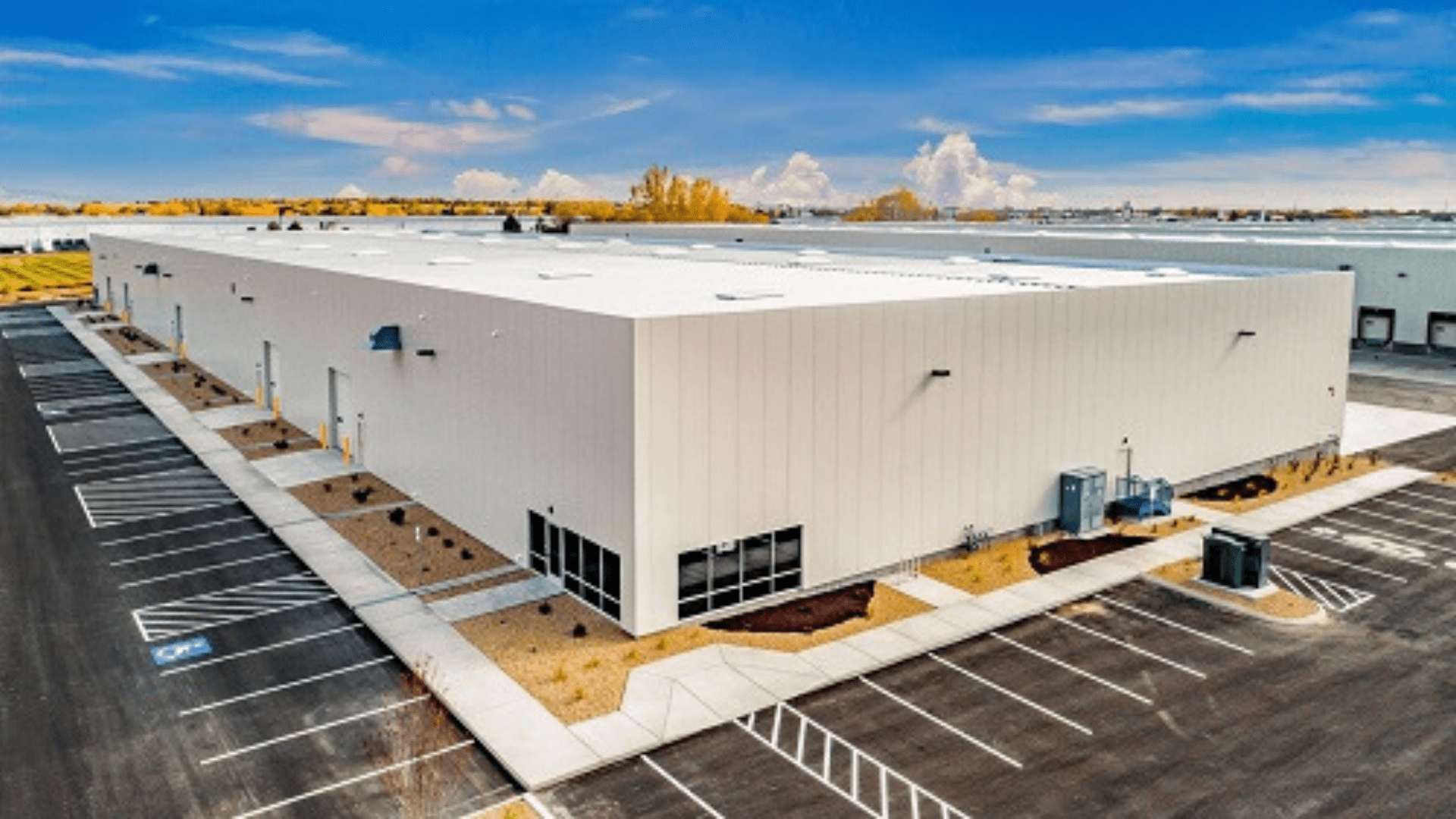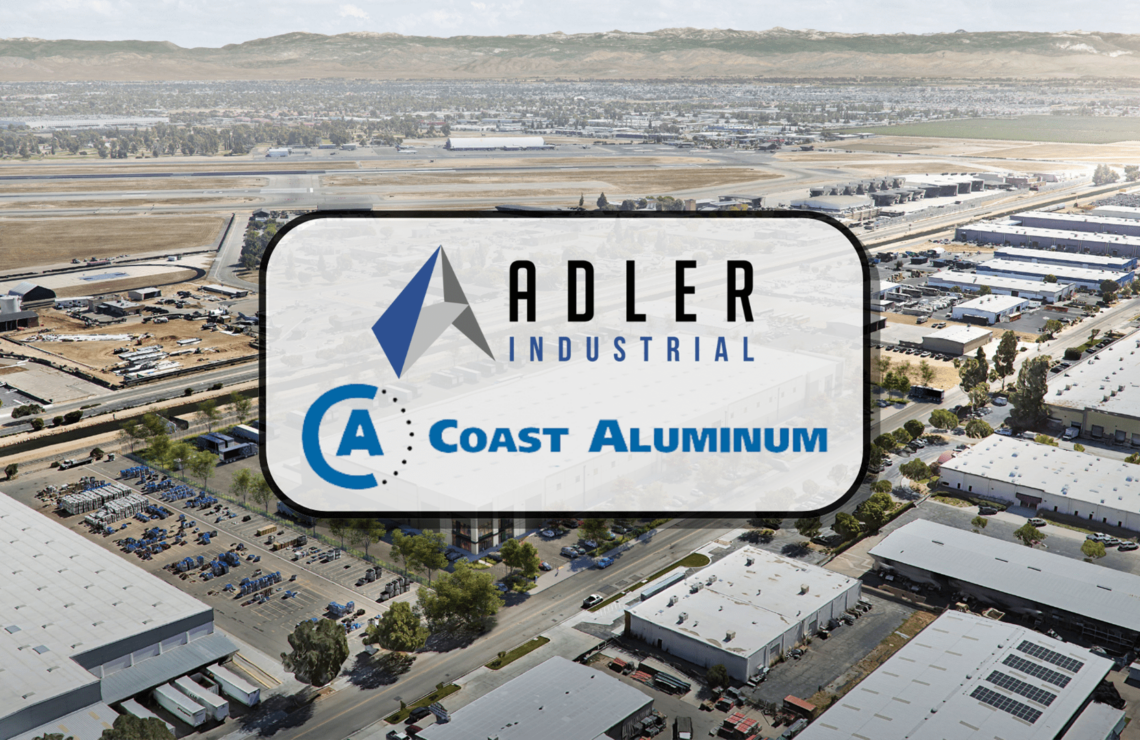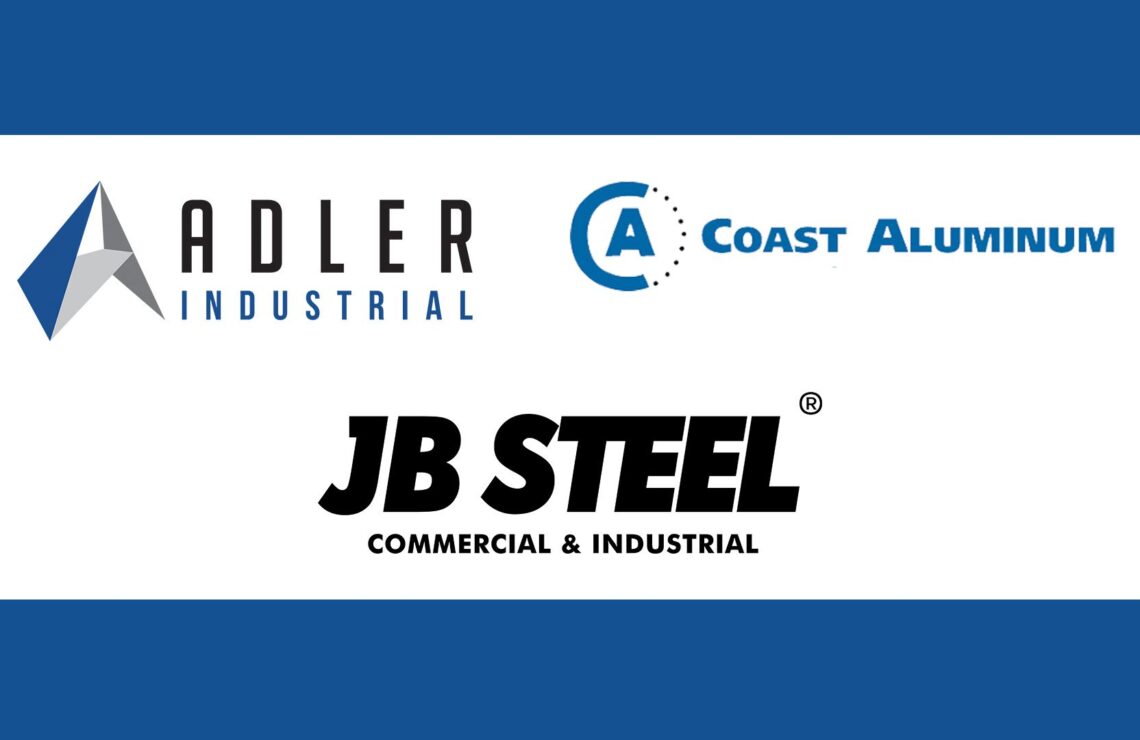Finding the right industrial warehouse space for lease is one of the most impactful decisions a business can make, one that influences daily operations, logistics performance, and long-term profitability. Whether your company is focused on large-scale manufacturing, regional distribution, product assembly, or e-commerce fulfillment, the warehouse you choose becomes the backbone of your operational workflow. A strategically chosen space can streamline how you store, move, and manage goods, helping reduce operational costs, optimize labor, and minimize downtime. In contrast, the wrong space can lead to inefficiencies, delays, and unnecessary expenses that chip away at your bottom line. That’s why choosing a warehouse isn’t just a real estate decision, it’s a foundational business strategy.
Opting to lease a warehouse, rather than purchase one outright, offers many advantages, especially for companies in growth phases or with shifting market demands. Leasing provides much-needed flexibility, allowing you to relocate or scale up as your storage, distribution, or manufacturing needs evolve. It also typically requires a lower upfront financial commitment compared to buying property, which can free up capital for other business priorities like equipment upgrades, hiring, or expanding product lines. Moreover, leasing lets businesses tap into modern facilities with updated infrastructure without bearing the full cost of development or maintenance, making it a practical and scalable solution for companies of all sizes.
However, successfully leasing a warehouse space isn’t as simple as signing a lease and moving in. The process involves careful planning, comprehensive research, and a deep understanding of both your current operational needs and your projected growth. Variables such as proximity to highways and ports, ceiling height, loading dock configuration, zoning regulations, security features, and even parking availability can all affect how well a space suits your business. And then there are the lease terms themselves, things like triple net agreements, escalation clauses, renewal options, and maintenance responsibilities, all of which can significantly influence your costs and obligations over time. Without careful review, businesses may find themselves locked into unfavorable terms or facilities that quickly become inadequate.
This guide is designed to walk you through everything you need to know when searching for industrial warehouse space for lease. We’ll help you understand the characteristics of a well-functioning warehouse, evaluate essential site and building features, and navigate the complexities of commercial lease agreements. We’ll also explore how to anticipate future growth and select a property that can evolve with your business. Whether you’re leasing your first warehouse or transitioning into a larger, more modern space, this resource will equip you with the insight and tools to make a smart, informed leasing decision that positions your business for long-term success.
Decoding Industrial Warehouse Space: What Every Business Needs to Know
An industrial warehouse is much more than a large storage facility, it’s a central piece of infrastructure that supports multiple business functions, from inventory management to distribution and even light manufacturing. These spaces are built for efficiency and flexibility, accommodating tasks such as receiving goods, organizing stock, processing returns, and preparing shipments. Many modern warehouses are designed with industry-specific features like temperature-controlled zones, high ceilings for vertical storage, reinforced floors for heavy machinery, and built-in automation systems. Whether it’s cross-docking, kitting, or order fulfillment, every part of the warehouse is intended to streamline operations and reduce bottlenecks. For growing companies, a well-structured warehouse can directly contribute to scalability by offering the space and resources needed to keep up with rising demand.
Businesses across nearly every sector, from manufacturing and retail to e-commerce and logistics, rely on warehouse space to keep their operations running smoothly. Manufacturers use warehouses not only for raw material storage but also as staging areas for production lines and final packaging. Logistics companies benefit from proximity to highways, ports, and airports, which can reduce transit times and shipping costs. E-commerce businesses, in particular, depend on warehouses for rapid order processing and real-time inventory tracking, which are essential for meeting customer expectations around fast delivery. Even traditional retailers and wholesalers use warehouse space to manage bulk inventory before distributing it to various store locations. In all cases, the right warehouse location and design can improve supply chain responsiveness, reduce operational costs, and increase customer satisfaction.
When leasing or choosing a warehouse, it’s critical for businesses to evaluate key operational features that will support their long-term success. Important considerations include ceiling height, which affects how products are stored and retrieved; floor load capacity, especially for facilities using heavy-duty equipment; and the number and type of loading docks, which influence shipping and receiving efficiency. Security is also a major factor, with many businesses requiring surveillance systems, restricted access, and alarmed entries to safeguard high-value goods. Other essential features might include HVAC systems for climate-sensitive products, employee parking, and access to labor markets. A well-located warehouse with the right infrastructure can enhance productivity, enable future expansion, and become a strategic advantage in a competitive market.
Key Factors to Consider When Leasing a Warehouse
Leasing a warehouse is a crucial decision that can directly impact a business’s efficiency, logistics, and long-term growth. The right space should align with operational needs, budget, and future expansion plans while offering accessibility and compliance with zoning regulations. From location and infrastructure to lease terms and hidden costs, understanding these key factors ensures a smart leasing decision that supports seamless operations and business success.
- Location & Accessibility: One of the most crucial factors in choosing a warehouse is its location and accessibility. A well-located warehouse ensures efficient logistics, lower transportation costs, and faster delivery times. Businesses should look for warehouses that are close to major highways, transportation hubs, ports, and airports. This is particularly important for companies that rely on fast shipping and receiving, as well as those that serve regional or national markets.
Accessibility isn’t just about proximity to highways, it also includes ease of access for trucks, suppliers, and delivery services. The warehouse should have ample parking space, well-maintained roads, and sufficient maneuvering areas for large vehicles. A facility that is difficult to access could lead to delays, increased operational costs, and logistical inefficiencies. - Warehouse Size & Layout: The size and layout of a warehouse should align with current operational needs and future growth plans. Businesses need to determine how much square footage they require based on inventory volume, machinery, workspace, and storage configurations. A company dealing with bulk goods or high-volume shipments may need a larger open-space warehouse, while one requiring specialized work areas may benefit from a warehouse with segmented zones.
Additionally, warehouse ceiling height and floor load capacity should be evaluated. High ceilings are beneficial for businesses that use vertical storage racks to maximize space. The floor must also support the weight of heavy machinery, shelving units, and stored inventory. Choosing a warehouse with an adaptable layout ensures that the space can accommodate business expansion and process optimizations.
- Lease Terms & Costs: Understanding the lease terms and associated costs is critical to making a financially sound decision. Rental rates for industrial warehouses vary based on location, property size, and included amenities. Businesses should carefully evaluate the base rent, common area maintenance fees, property taxes, and insurance costs before signing a lease.
Hidden costs, such as utilities, security systems, and facility maintenance, should also be considered. Some leases may include additional charges for infrastructure improvements, HVAC maintenance, or structural repairs. Ensuring transparency in total leasing expenses prevents unexpected financial burdens. - Zoning & Compliance: Before leasing a warehouse, businesses must verify that the property is zoned for their specific use. Zoning laws regulate what types of businesses can operate in certain areas, and violating zoning regulations could result in fines or forced relocation. Businesses should also check for environmental restrictions, safety codes, and fire regulations to ensure compliance.
If modifications are needed, such as installing specialized machinery, ventilation systems, or hazardous materials storage, it’s essential to understand whether the lease allows these changes and if permits will be required. - Infrastructure & Facilities: A well-equipped warehouse should have adequate power supply, reliable internet connectivity, HVAC systems, and sufficient lighting. Businesses relying on advanced technology, robotics, or automation must ensure that the facility has high-speed internet and electrical capacity to support their operations.
Parking and loading/unloading areas are also important. A warehouse should have ample parking for employees, visitors, and delivery vehicles. Efficient loading docks with dock levelers, ramps, and roll-up doors can significantly improve shipping and receiving processes. - Future Growth & Expansion Potential: Choosing a warehouse with room for growth ensures that businesses won’t outgrow their space too quickly. Leasing a property that allows for expansion or flexible lease renewal options helps businesses scale operations without facing relocation challenges. Additionally, for those considering long-term investment, exploring a warehouse property for sale can provide stability and future growth opportunities. If the business is expected to grow rapidly, it’s wise to negotiate expansion clauses in the lease agreement.
Steps to Finding the Ideal Industrial Warehouse for Lease
Finding the perfect warehouse space requires a structured approach. This process begins long before any lease is signed or walkthrough is scheduled. Businesses should start by clearly defining their operational needs, such as square footage, ceiling height, dock access, temperature control, and storage requirements. It’s equally important to consider location preferences based on proximity to suppliers, customers, highways, and labor pools. Understanding these logistical priorities early on will guide the search in a focused and efficient way. Budget also plays a critical role; factoring in not only base rent but also additional costs such as utilities, insurance, property taxes, and common area maintenance fees helps avoid unexpected financial strain down the road. With these parameters in place, businesses can save time and energy by eliminating properties that don’t fit their needs from the outset.
Researching available listings through multiple channels is the next logical step. Commercial real estate platforms like LoopNet, CREXi, and CoStar can provide a wide overview of available warehouse spaces, including photos, specifications, and contact information. However, digital listings alone often don’t tell the full story. Businesses should also tap into industry contacts, peer referrals, and local real estate firms who may have insider knowledge or off-market properties not publicly advertised. One of the most effective strategies is partnering with a commercial real estate broker who specializes in industrial properties. These professionals offer insights into current market trends, negotiate on your behalf, and often have early access to listings before they go public. Their expertise can help identify value opportunities and navigate the complexities of zoning regulations, compliance standards, and local ordinances that might otherwise be overlooked.
Conducting thorough site visits and inspections is essential to assess whether the warehouse meets your business’s standards. A space might look good on paper, but the real evaluation happens in person. During a walkthrough, businesses should examine everything from loading dock functionality and floor condition to lighting, ventilation, and pest control. Structural integrity, roofing, plumbing, and electrical systems should be closely inspected, ideally with the help of a professional inspector who can identify potential issues that could become costly over time. Safety should also be a priority, check whether the property includes fire suppression systems, adequate security measures like fencing and surveillance, and proper signage for emergency exits and equipment. Operational efficiency is key: assess how well the layout supports your workflow, from receiving and storing inventory to shipping and managing traffic flow within the facility.
Once a suitable property is identified, negotiating the lease terms becomes a critical step. The lease is more than just a rental agreement, it defines the relationship between landlord and tenant and outlines financial obligations, risk allocation, and future flexibility. It’s important to thoroughly review all clauses, including lease length, renewal conditions, rent escalation terms, and any rent-free periods or incentives being offered. Pay close attention to maintenance responsibilities, some leases place the burden of repairs and upkeep on the tenant, which can lead to unanticipated expenses. Also, be sure to understand the exit terms: are there early termination penalties, subleasing options, or clauses that allow for expansion or relocation if your business grows? Having legal counsel or a knowledgeable broker review the lease can help ensure you’re signing a fair, protective agreement that aligns with your long-term goals.
After finalizing the lease, the focus shifts to planning the move-in and setting up operations smoothly. This transitional phase is crucial for minimizing downtime and maintaining continuity. Begin by developing a detailed move-in timeline that coordinates logistics such as transporting inventory, setting up IT infrastructure, and configuring shelving or racking systems. Notify suppliers and service providers of the new address and arrange for utilities to be transferred or initiated before move-in day. If modifications or build-outs are needed to tailor the space for your operation, ensure that timelines, permits, and contractors are secured well in advance. Staff should be informed and, if necessary, trained on any new layouts or safety protocols. The goal is to be fully operational with minimal disruption, allowing your business to hit the ground running in its new warehouse space.
Adler Industrial, LLC: The Smart Choice for Seamless Warehouse Leasing
Exploring the industrial real estate market can be a complex and time-consuming endeavor, especially for businesses that need the right location to support logistics, manufacturing, or distribution. At Adler Industrial, LLC, we make the process seamless by applying deep market knowledge, industry-specific insight, and a personalized approach to every client engagement. Whether you’re an established enterprise or a growing startup, we work diligently to ensure that you find a property that aligns with your operational goals and long-term vision. Our goal is not just to help you lease space, we aim to set the foundation for your success.
With years of hands-on experience in the warehouse leasing sector, we understand the factors that can make or break a commercial real estate decision. Adler Industrial focuses on more than just square footage, we prioritize the functionality, location, and efficiency of every space we offer. Our listings include industrial properties equipped with modern infrastructure, high ceilings, loading docks, climate control, and secure access. Whether your business involves e-commerce, light manufacturing, or large-scale logistics, we guide you toward properties that support smooth workflows, reduce overhead, and enhance overall productivity.
Our broad portfolio of industrial spaces means businesses gain access to a wide variety of properties in high-demand areas. We partner with developers and property owners across the region to offer locations that are strategically positioned near major highways, ports, rail lines, and urban centers. This accessibility is critical for maintaining supply chain reliability and reducing transportation costs. Additionally, our properties are situated in industrial parks or mixed-use zones that allow flexibility and scalability, making it easier for businesses to expand when the time is right.
At Adler Industrial, we recognize that no two businesses are exactly alike. That’s why we offer customized leasing solutions tailored to the specific needs of your business. Whether you’re looking for a short-term lease to accommodate seasonal demand or a long-term arrangement that supports steady growth, we take the time to understand your size, budget, industry requirements, and future projections. We’ll help you balance cost-effectiveness with location quality and amenities, ensuring that your lease aligns with both your immediate and future business needs.
Our full-service approach includes everything from property searches to lease negotiations and final signing. We serve as a trusted advocate throughout the process, ensuring that each step, from property tours to documentation, is handled efficiently and transparently. Our team works closely with tenants and landlords alike to streamline communications and resolve issues quickly, so you can move forward without unnecessary delays. By managing the details on your behalf, we free you up to focus on what matters most: running and growing your business.
From start to finish, Adler Industrial, LLC is committed to delivering a leasing experience that’s not only smooth but also strategically aligned with your long-term operational goals. We believe that the right industrial space is more than just a place to work, it’s a platform for growth, a hub for efficiency, and a key piece of your competitive advantage. With our expert guidance, businesses can confidently navigate the industrial real estate landscape and secure a space that meets their needs today while preparing them for tomorrow.
Conclusion:
Leasing the right warehouse space isn’t just about square footage—it’s a strategic move that impacts your logistics, costs, and growth. From dock configuration to proximity to highways, every detail matters. At Adler Industrial, LLC, we help businesses find spaces that align with their operations, budgets, and long-term plans.
Whether you need cold storage, manufacturing space, or a logistics hub, our team offers expert guidance and a curated portfolio of warehouse properties for lease or sale. We don’t just show listings—we advise, negotiate, and streamline the process so you can focus on growing your business.
Let’s find the space that works as hard as you do. Contact Adler Industrial, LLC today to get started.




